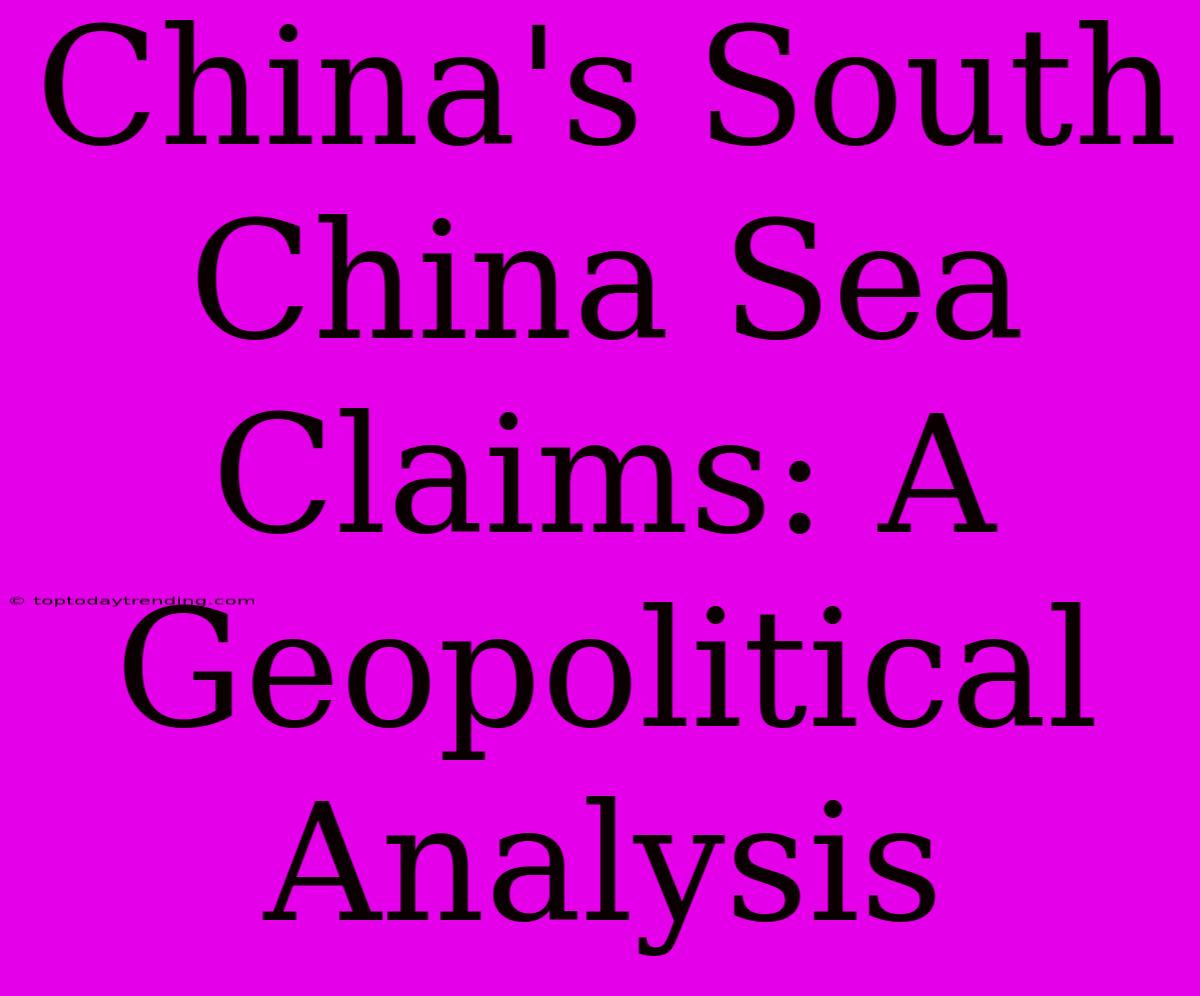China's South China Sea Claims: A Geopolitical Analysis
The South China Sea (SCS) is a vital waterway, strategically and economically, for many nations, particularly China. China's expansive claims to the region, however, have sparked geopolitical tensions with neighboring countries and fueled international concerns. This article will delve into China's claims, analyze the geopolitical ramifications, and examine the various viewpoints surrounding this complex issue.
China's Nine-Dash Line
China's claims in the SCS are based on a historical map known as the "nine-dash line", which designates vast swathes of the sea, including areas overlapping with territories claimed by Vietnam, Malaysia, Brunei, the Philippines, and Taiwan. Beijing asserts its sovereignty over these waters based on historical evidence of exploration and fishing activities by Chinese people for centuries.
The Dispute's Roots: Historical Perspectives
The historical basis of China's claims is contested. While China argues its historical ownership of the SCS, many other nations, including Vietnam, have long held their own claims based on historical precedents and their own maritime practices in the region. The issue of overlapping claims, historical interpretations, and conflicting narratives makes it a complex issue to navigate.
Geopolitical Implications and Regional Tensions
China's assertive actions in the SCS, including the construction of artificial islands, military deployments, and aerial patrols, have fueled tensions with its neighbors.
- Territorial Disputes: The overlapping claims of different nations have led to territorial disputes, often escalating into maritime incidents. These conflicts threaten regional stability and have the potential to trigger wider conflicts.
- Economic Stakes: The SCS holds substantial economic resources, including oil and natural gas reserves, as well as crucial shipping routes for global trade. China's efforts to control these resources have raised concerns about its intentions and the potential for unfair economic advantages.
- Military Buildup: China's increased military presence in the region, including the deployment of warships and aircraft, has raised concerns about its growing military might and potential for regional dominance. This military buildup further fuels tensions with neighboring countries, especially those with territorial disputes.
International Perspectives and Responses
The international community has expressed concerns over China's assertive actions in the SCS.
- United States: The US has consistently condemned China's actions in the SCS and conducted freedom of navigation operations to challenge its claims. This stance has led to increased tensions between the US and China, further complicating their strategic rivalry.
- ASEAN: The Association of Southeast Asian Nations (ASEAN) has expressed concerns about the escalating tensions in the SCS and called for peaceful resolution of the disputes through dialogue and diplomacy.
- International Law: Many countries argue that China's actions in the SCS violate international law, particularly the United Nations Convention on the Law of the Sea (UNCLOS), which governs maritime claims and dispute resolution.
Towards a Peaceful Resolution
The South China Sea disputes pose a significant challenge to regional stability and global peace. Finding a peaceful resolution requires:
- Dialogue and Diplomacy: All parties involved must engage in dialogue and diplomacy to find common ground and reach mutually agreeable solutions.
- Respect for International Law: All claimants must respect international law, particularly UNCLOS, in resolving territorial disputes.
- Transparency and Collaboration: All parties should promote transparency and cooperation in managing shared resources and navigating the SCS safely.
Conclusion
China's claims in the South China Sea remain a contentious issue with far-reaching geopolitical implications. The disputes involve complex historical narratives, economic interests, and military considerations. Finding a peaceful and lasting solution requires diplomatic efforts, adherence to international law, and a commitment to cooperation among all parties involved. The future of the SCS will depend on whether regional actors can overcome their differences and prioritize peace and stability in the region.

